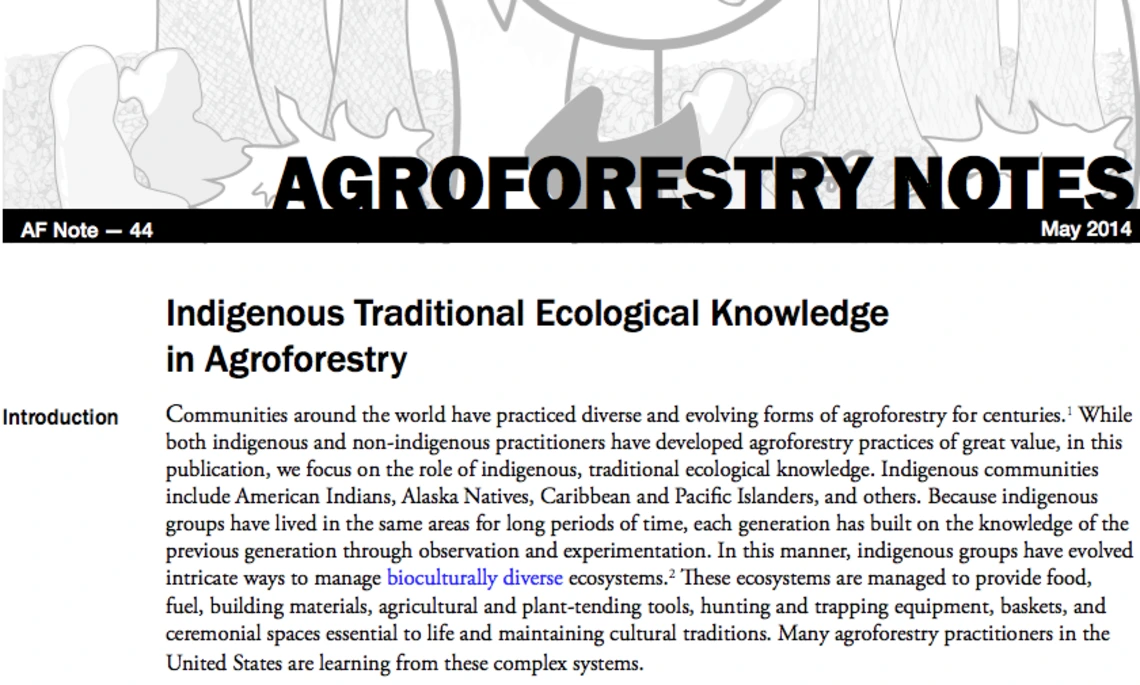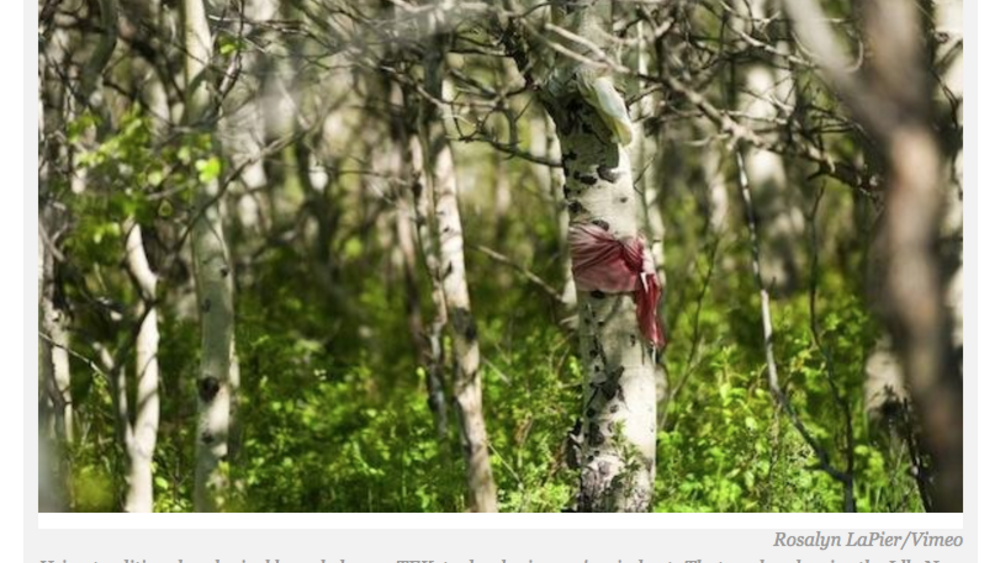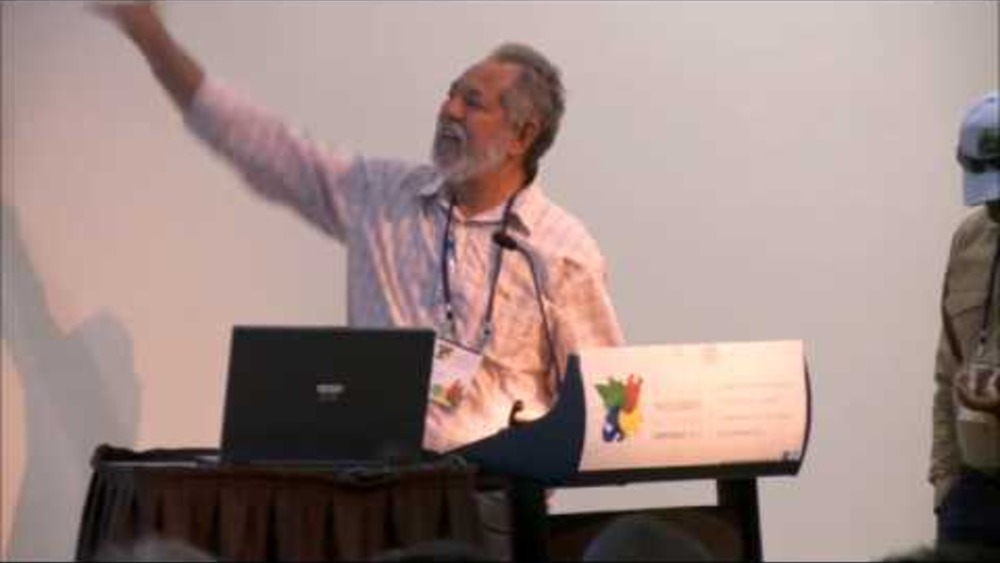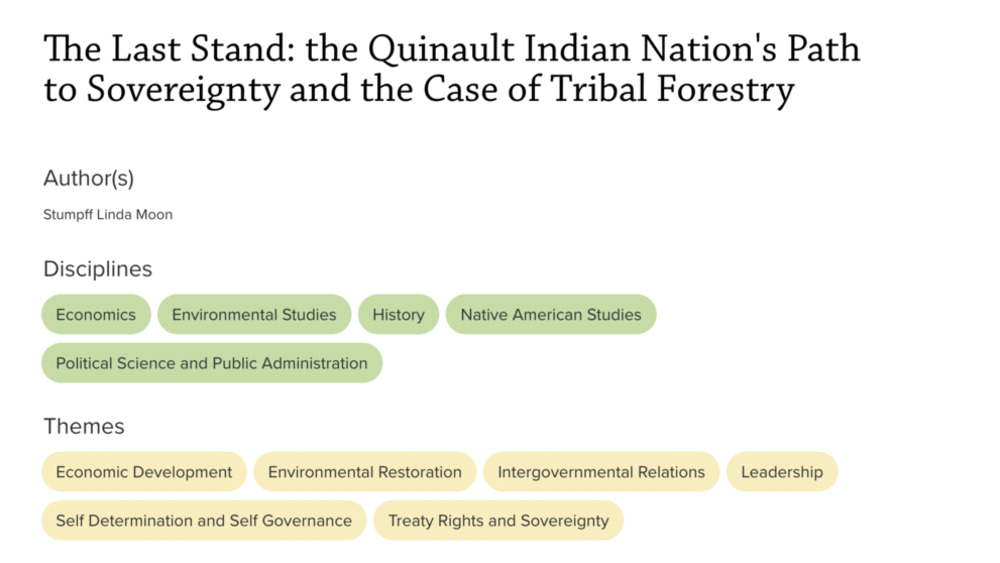Communities around the world have practiced diverse and evolving forms of agroforestry for centuries. While both Indigenous and non-Indigenous practitioners have developed agroforestry practices of great value, in this publication, we focus on the role of Indigenous, traditional ecological knowledge. Indigenous communities include American Indians, Alaska Natives, Caribbean and Pacific Islanders, and others. Because Indigenous groups have lived in the same areas for long periods of time, each generation has built on the knowledge of the previous generation through observation and experimentation. In this manner, Indigenous groups have evolved intricate ways to manage bioculturally diverse ecosystems. These ecosystems are managed to provide food, fuel, building materials, agricultural and plant-tending tools, hunting and trapping equipment, baskets, and ceremonial spaces essential to life and maintaining cultural traditions. Many agroforestry practitioners in the United States are learning from these complex systems.
Additional Information
Rossier, Colleen and Frank Lake. "Indigenous Traditional Ecological Knowledge in Agroforestry." Agroforestry Notes. USDA National Agroforestry Center. May 2014. Article. (https://www.fs.usda.gov/nac/assets/documents/agroforestrynotes/an44g14.pdf, accessed July 25, 2023)




